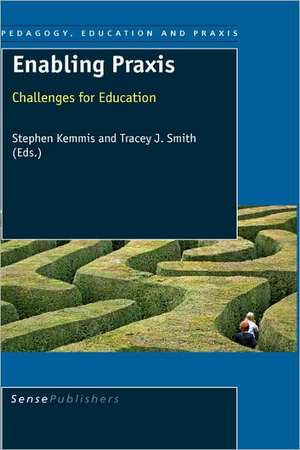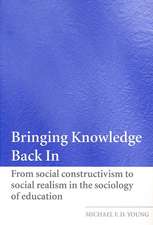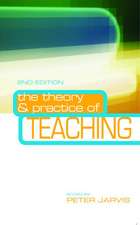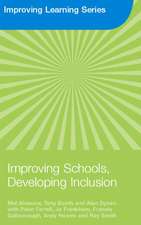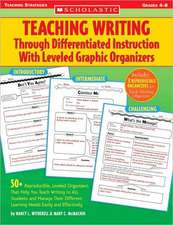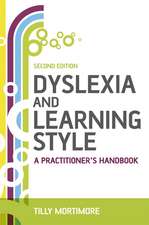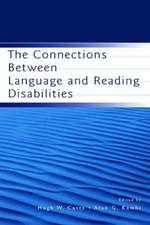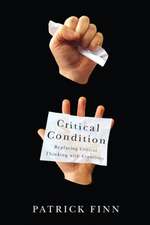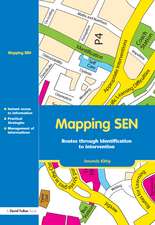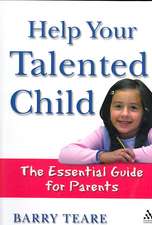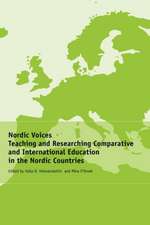Enabling Praxis
Editat de Stephen Kemmis, Tracey J. Smithen Limba Engleză Hardback – 14 ian 2008
| Toate formatele și edițiile | Preț | Express |
|---|---|---|
| Paperback (1) | 410.56 lei 38-44 zile | |
| Brill – 31 dec 2007 | 410.56 lei 38-44 zile | |
| Hardback (1) | 575.16 lei 38-44 zile | |
| Sense Publishers – 14 ian 2008 | 575.16 lei 38-44 zile |
Preț: 575.16 lei
Preț vechi: 710.07 lei
-19% Nou
Puncte Express: 863
Preț estimativ în valută:
110.07€ • 114.26$ • 91.78£
110.07€ • 114.26$ • 91.78£
Carte tipărită la comandă
Livrare economică 18-24 martie
Preluare comenzi: 021 569.72.76
Specificații
ISBN-13: 9789087902544
ISBN-10: 9087902549
Pagini: 320
Dimensiuni: 156 x 234 x 19 mm
Greutate: 0.63 kg
Editura: Sense Publishers
Locul publicării:Netherlands
ISBN-10: 9087902549
Pagini: 320
Dimensiuni: 156 x 234 x 19 mm
Greutate: 0.63 kg
Editura: Sense Publishers
Locul publicării:Netherlands
Descriere
Descriere de la o altă ediție sau format:
In a range of professions, professional practice today is under threat. It is endangered, for example, by pressures of bureaucratic control, commodification, marketization, and the standardisation of practice in some professions. In these times, there is a need for deeper understandings of professional practice and how it develops through professional careers. Enabling Praxis: Challenges for education explores these questions in the context of initial and continuing professional education of teachers. It presents a theory of the development of praxis—morally committed action oriented by tradition—to show the ways praxis is enabled and constrained by the cultural-discursive, material and social-political conditions under which professional practice occurs. It introduces the notion of ‘practice architectures’ to show how particular conditions for practice shape the possibilities of praxis. The way these processes work is illustrated by detailed exploration of a number of cases of praxis development in a variety of educational settings, at a variety of levels—in teacher education for schools and for vocational education and training, in the continuing professional education of teachers, in educational administration, and in informal, community-based education for sustainability initiatives. The book provides conceptual resources that permit deeper analysis of the character, conduct and consequences of professional practice. It concludes with challenges for education, and for initial and continuing teacher education, suggesting that the contemporary threats to education as a professional practice call for revitalisation of the profession, professional bodies and the intellectual traditions that orient and guide educational practice.
In a range of professions, professional practice today is under threat. It is endangered, for example, by pressures of bureaucratic control, commodification, marketization, and the standardisation of practice in some professions. In these times, there is a need for deeper understandings of professional practice and how it develops through professional careers. Enabling Praxis: Challenges for education explores these questions in the context of initial and continuing professional education of teachers. It presents a theory of the development of praxis—morally committed action oriented by tradition—to show the ways praxis is enabled and constrained by the cultural-discursive, material and social-political conditions under which professional practice occurs. It introduces the notion of ‘practice architectures’ to show how particular conditions for practice shape the possibilities of praxis. The way these processes work is illustrated by detailed exploration of a number of cases of praxis development in a variety of educational settings, at a variety of levels—in teacher education for schools and for vocational education and training, in the continuing professional education of teachers, in educational administration, and in informal, community-based education for sustainability initiatives. The book provides conceptual resources that permit deeper analysis of the character, conduct and consequences of professional practice. It concludes with challenges for education, and for initial and continuing teacher education, suggesting that the contemporary threats to education as a professional practice call for revitalisation of the profession, professional bodies and the intellectual traditions that orient and guide educational practice.
